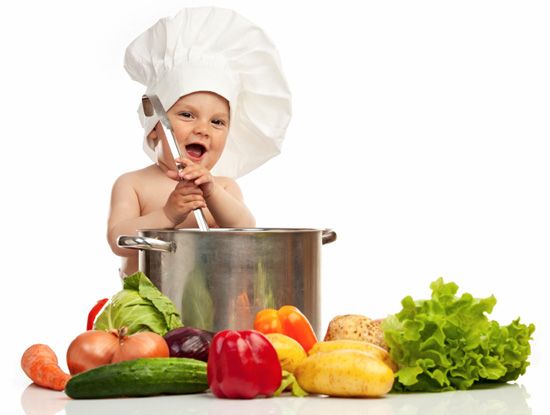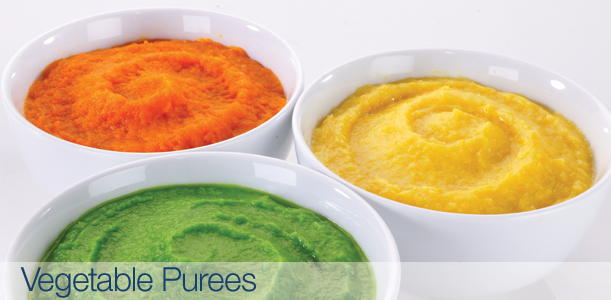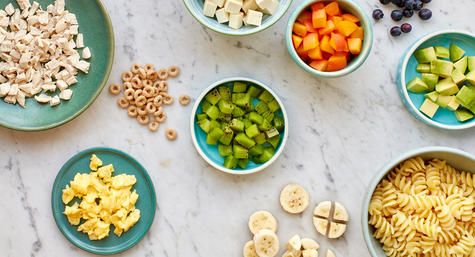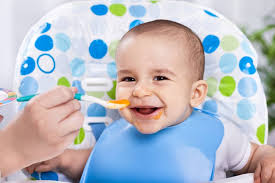The first year for your infant is the most essential year. It determines how healthy the baby will grow up to be. Giving the right baby foods which contains the right amount of nutrition is the key to a nourishing body of your baby. Every infant is different. All baby foods are not necessarily appropriate for all infants, it depends on many factors like gender, weight, lifestyle etc.
This time we get to you important baby foods that you should introduce in the diet of your infant. However, you don’t have to introduce food to your child in any special order. If you want to give your baby tofu at the age of 6 months, go ahead, even if we’ve not mentioned it. In most cases you don’t even have to wait to introduce highly allergenic foods like eggs, fish and peanuts. However, make sure to consult your doctor before doing so.
We have tried our best to keep a balance in the chart we’re presenting for vegetarians as well as non vegetarians. Hope we help you with making your baby a healthier and a happier one!

Birth to 4 months
Solid baby foods are a strict no. Your child’s digestive tract is still developing, ONLY breast milk or formula is allowed.
4-6 months
Ideally, solid baby foods should not be introduced before 6 months but nonetheless, if you want to start solid food for your child at an early age, watch out for these signs – whether your baby call hold his/her head up, makes chewing motions, can close mouth around a spoon, shows interest in food, etc.
However, do not stop breast feeding the baby, but you may add the pureed vegetables (like sweet potatoes, squash), pureed fruits (apples, peaches, bananas), pureed meat (chicken, beef, pork) and most importantly semi-liquid, iron forfeited cereal.

6-8 months
By this age, your baby can try new baby foods since its developing its taste buds. Again, it is important for you to not lose touch with the previous diet chart either. With the above mentioned foods such as pureed fruits, pureed vegetables, pureed meats, you can start feeding it pureed tofu. You can also introduce yogurt in the diet chart this time, but make sure its whole milk or soya based only.
8-10 months
Your baby is finally ready for finger baby foods. Mashed fruits and vegetables, that can be cooked and is not needed to be pureed. You can start feeding your baby egg yolks, but not white, since at this age the child needs more of fats than proteins. Finger foods like small cereals, teething crackers or small pieces of cooked pasta can also be fed. Small amounts of cottage cheese can be a treat for your little one too!

10-12 months
Your baby can eat most of the foods you eat now, if they are cut up and mashed properly. Your child can swallow food more easily now, has more teeth, tries to use a spoon and no longer pushes the food out its mouth. Unless you have a strong family history of allergies, do not hesitate to feed your kid peanut products, eggs, wheat or fish. Avoid whole cow’s milk and honey until at least one year.

Comments
Powered by Facebook Comments

